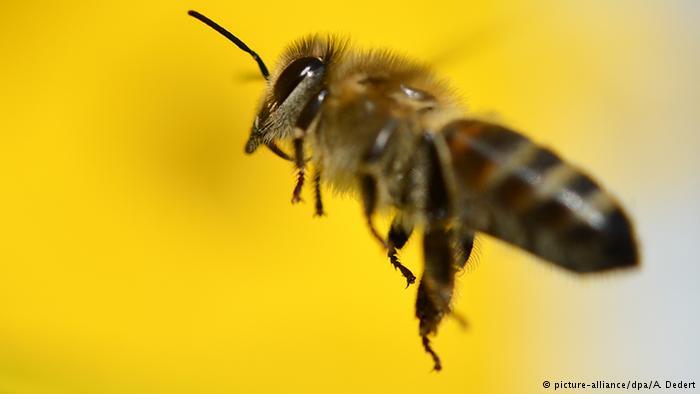There are some indeed some things we take too much for granted. Like bees: Our food would not be the same without them. By merely buzzing from one flower to the next in their quest to collect nectar and pollen, they pollinate crops, help farmers make money and put food on our tables. An international team of dozens of scientists set out to quantify the service that bees provide for farmers. “On average, wild bee communities contributed $3,251 [2,891 euros] per hectare to production of the examined crops,” they write in the journal “Nature Communications.” David Kleijn of the University of Wageningen in the Netherlands along with colleagues combined data from more than 90 studies on wild bees from five continents. Taken together over all agricultural areas worldwide, bees are indeed worth billions. So those buzzing insects are not only about wildflowers and honey – bees are about big business. Bee diversity not significant What might be surprising: Money-wise, wild bees contribute the same amount to agriculture as managed honeybees – even a little more. According to the study, cultivated bees’ service are on average worth $2,913 per hectare – about $300 less than wild bees’ contribution. So, does this study contradict the concept that biodiversity is important for our economy – as conservationists keep on saying? In this case yes, it does. “Crop-visiting wild bee communities are dominated by a small number of common species, and threatened species are rarely observed on crops,” the authors write. In fact, only 2 percent of the most common species pollinate almost 80 percent of all crops. Every bee species has preferences for certain host plants, the study reveals, and some species might not be able to raise offspring with nectar from plants used for agriculture. David Kleijn tells DW that he already expected this result based on former studies in Italy and the Netherlands. He added that bees need to be protected, regardless. In favor of bee protection “Highlighting the economic benefits people might obtain from biodiversity can be an effective instrument to motivate people […] to support biodiversity conservation,” Kleijn and his colleagues wrote. Specifically promoting a diversity of bee species fails to make the case here. Strictly economically speaking, saving only the most common species from extinction while allowing other species to die off would secure pollination services just the same. This could happen if emphasis were placed on organic agriculture and protecting landscapes adjacent to agricultural fields. Yet ecologists point out that a diversity of species provides many other benefits, both tangible and intangible. David Kleijn says economics should not dictate all arguments to protect bee diversity. “We like to have all these species around – and they have been there for hundred thousands of years – so [protecting them] is the right thing to do.” DW












